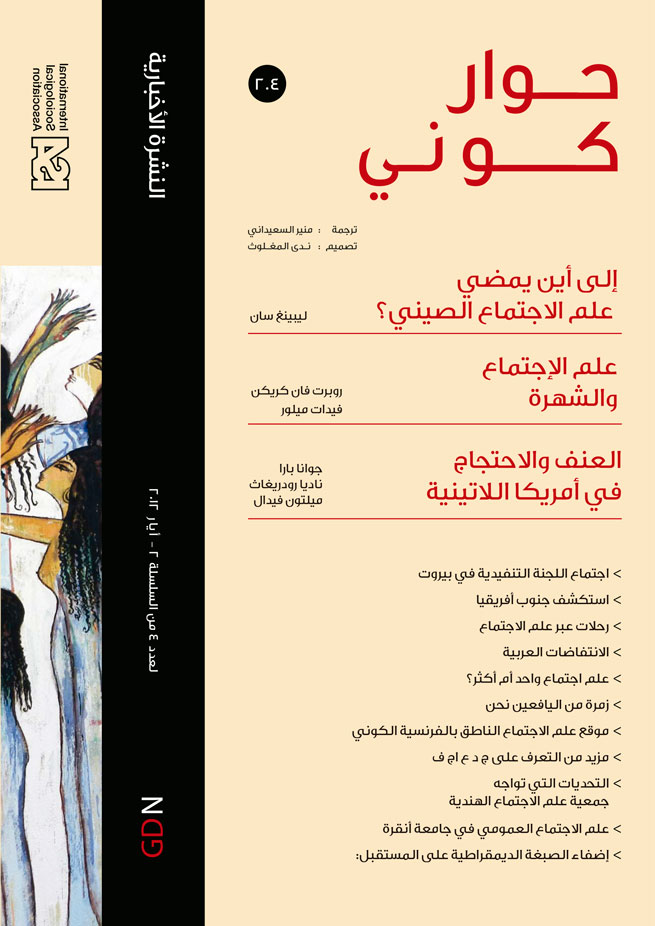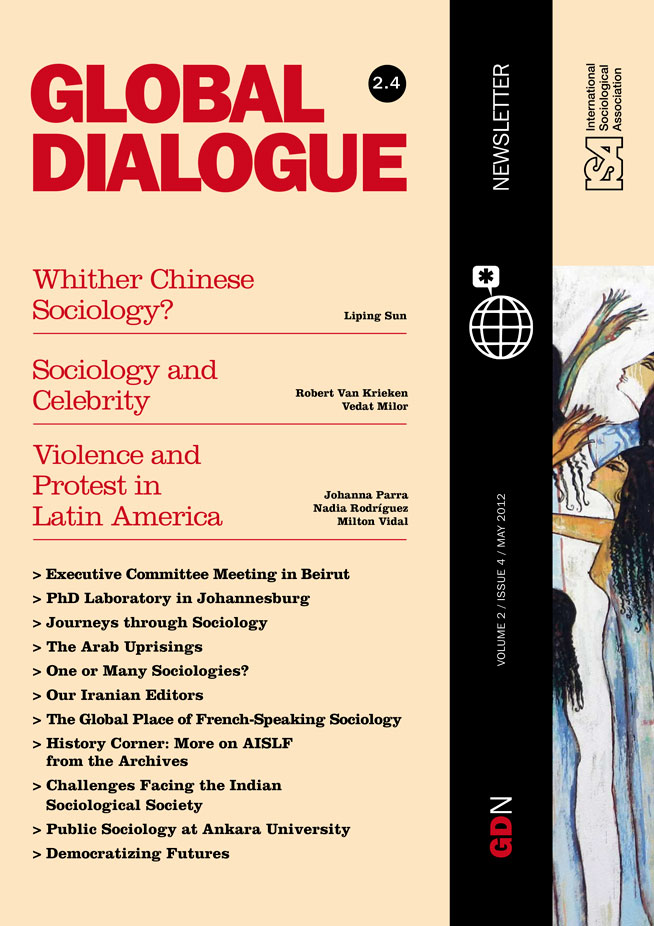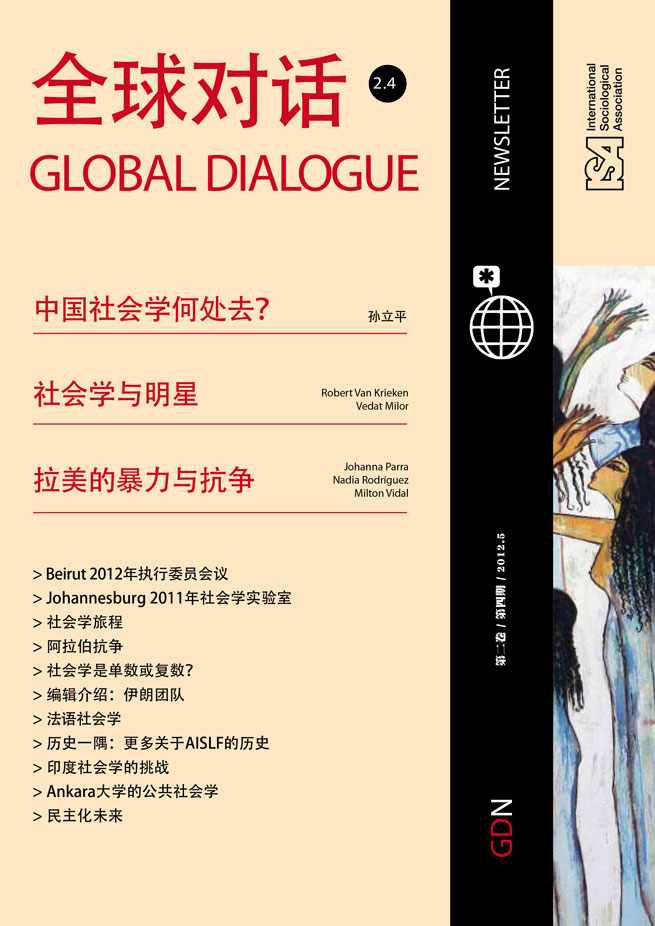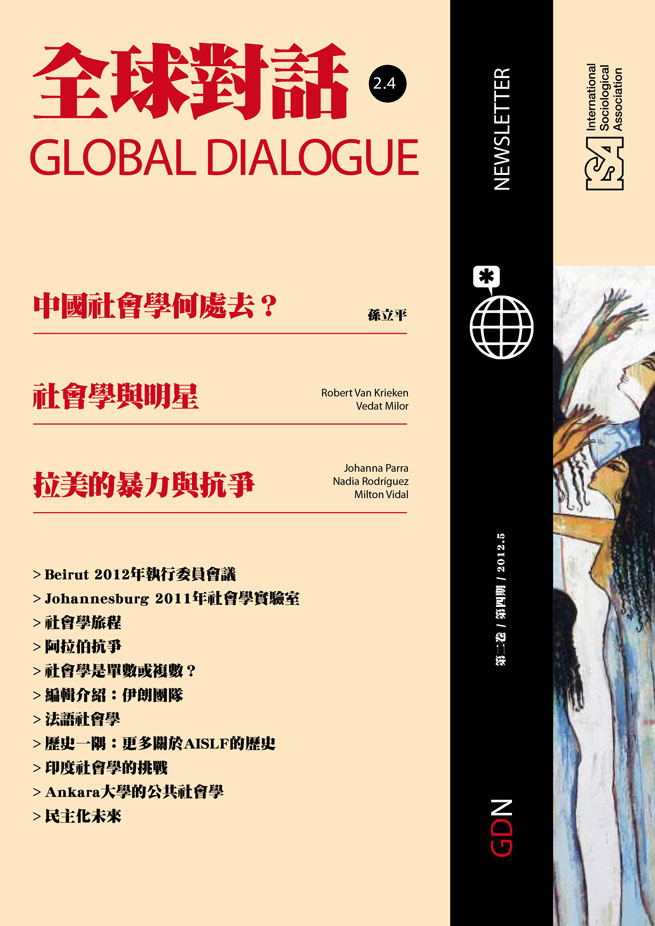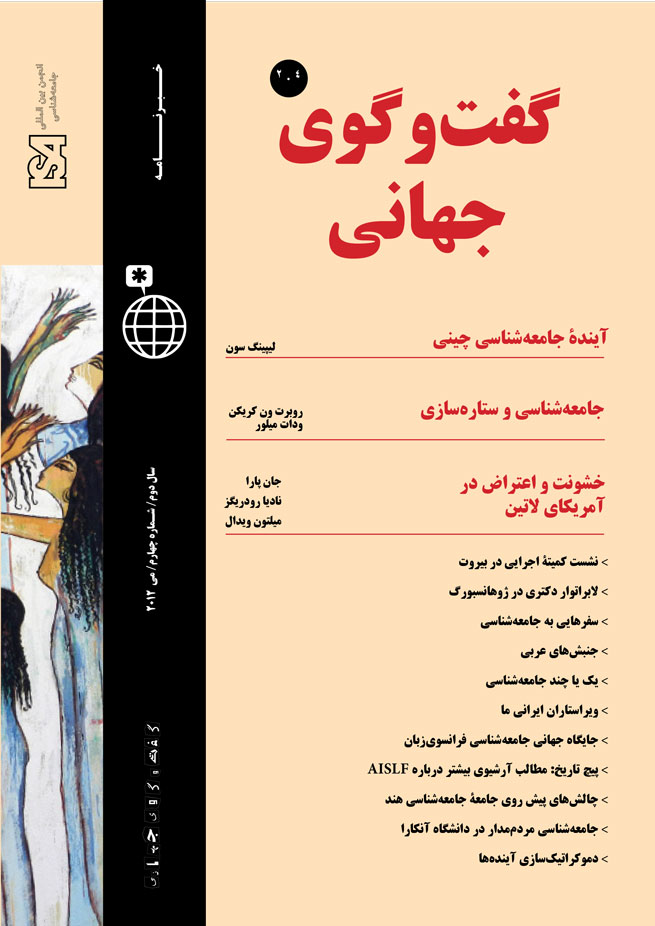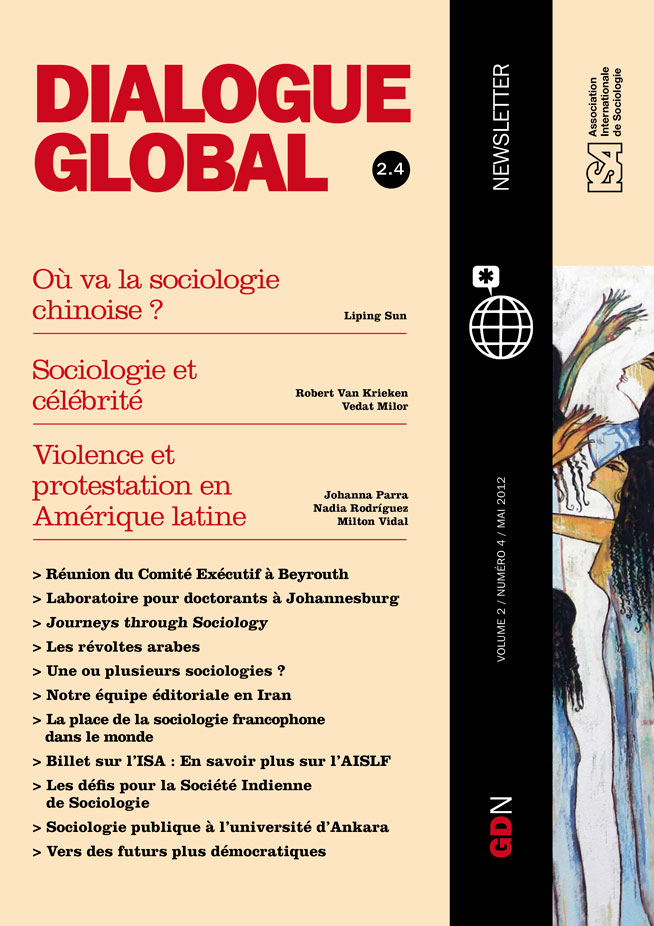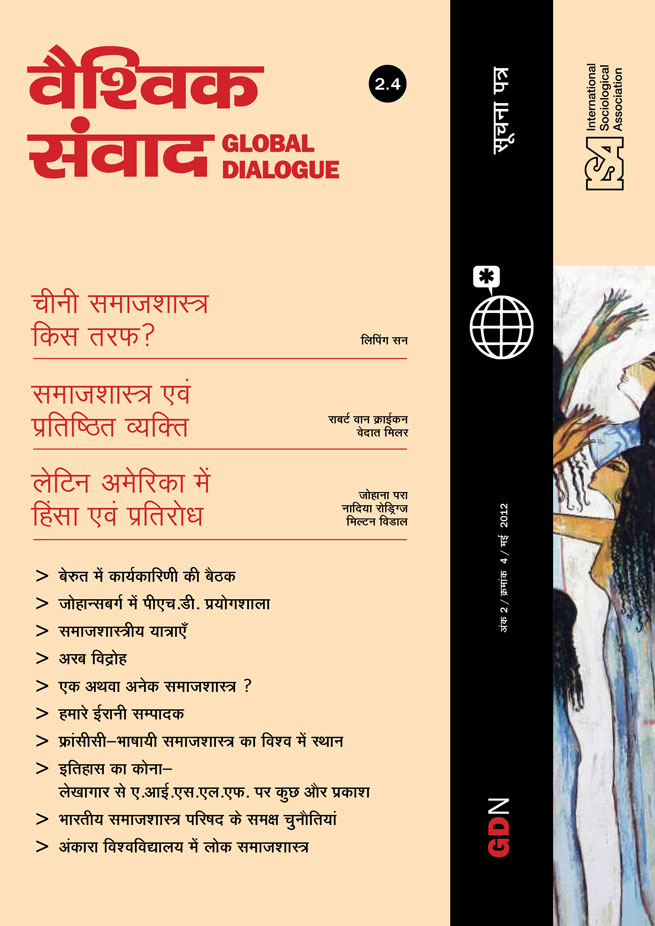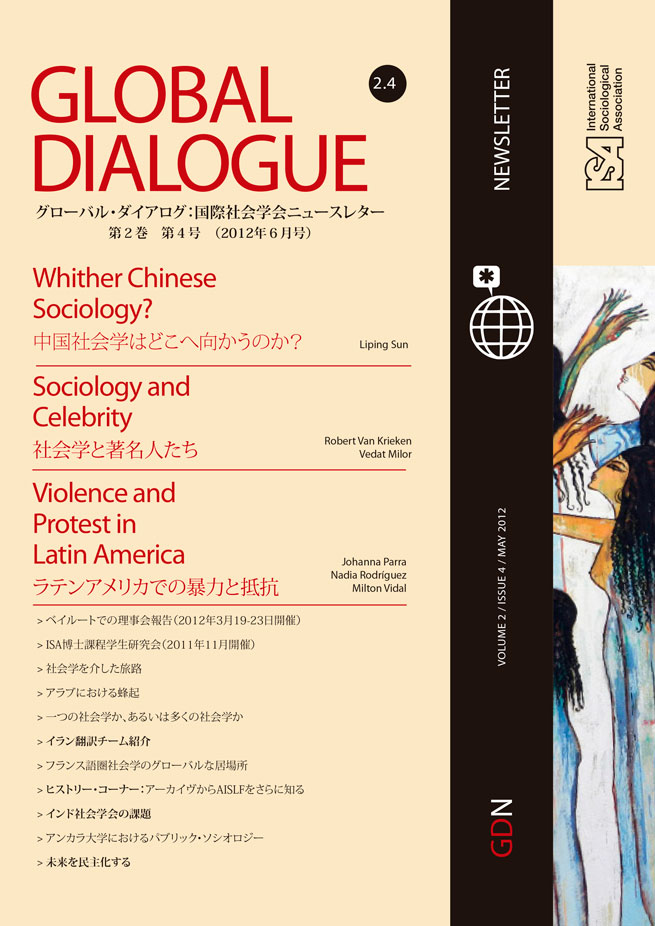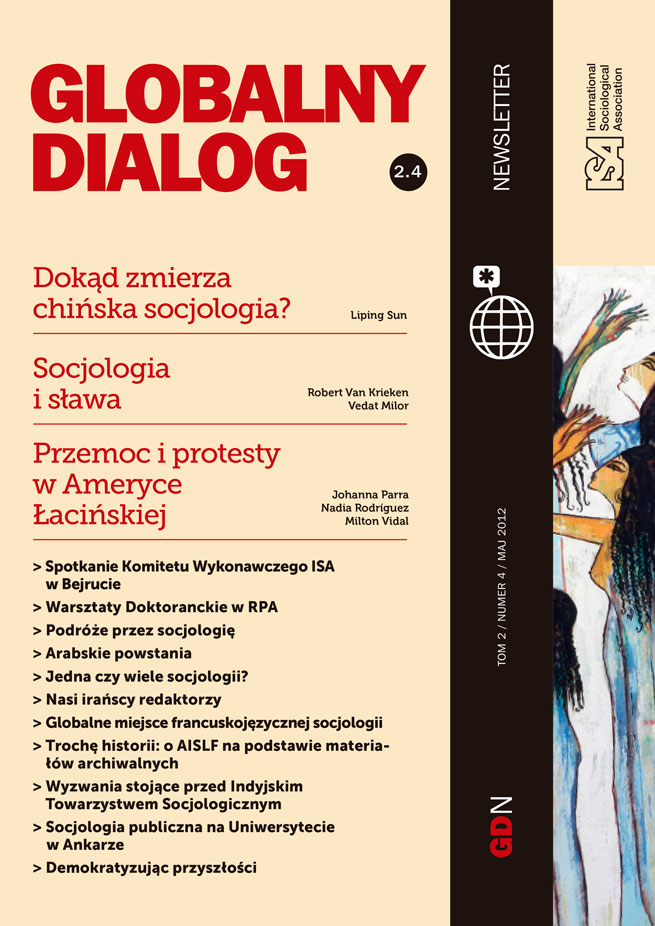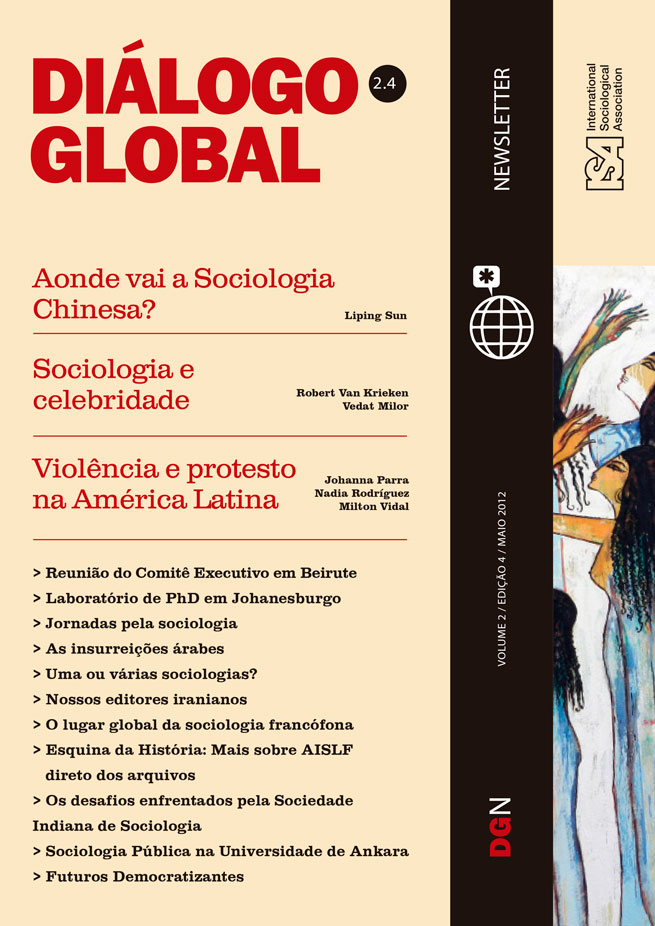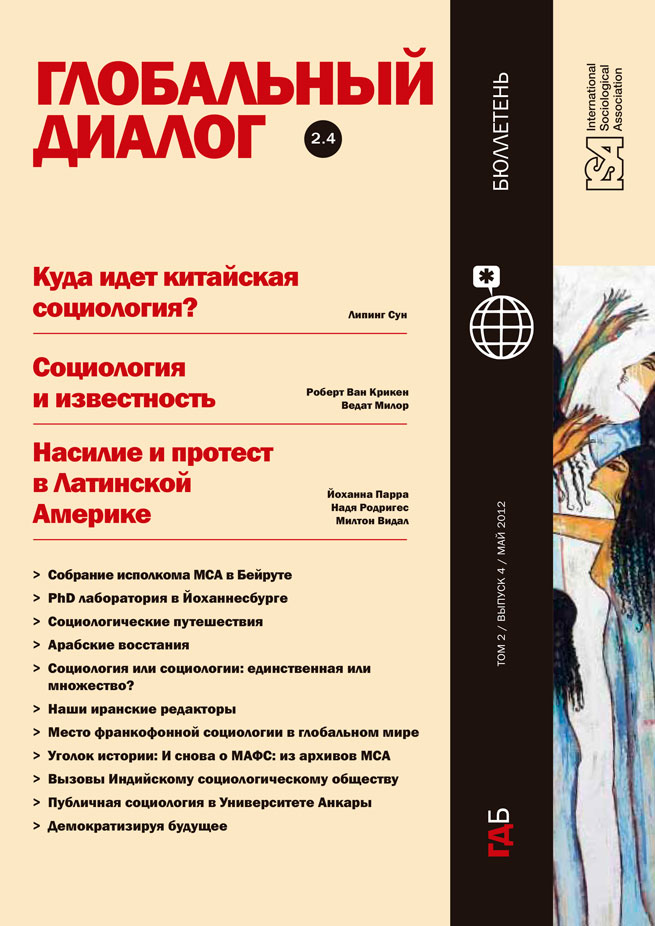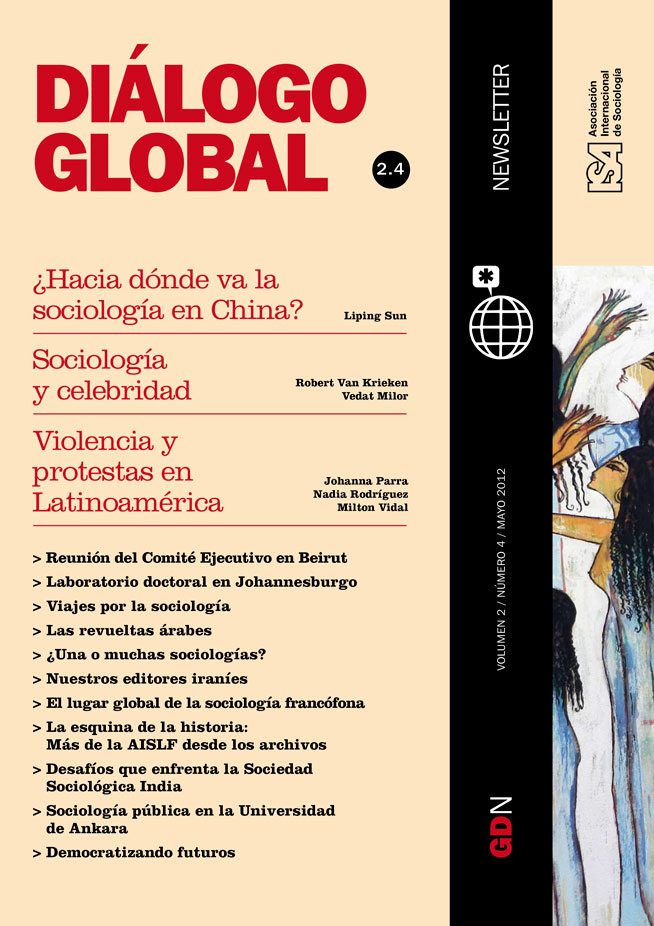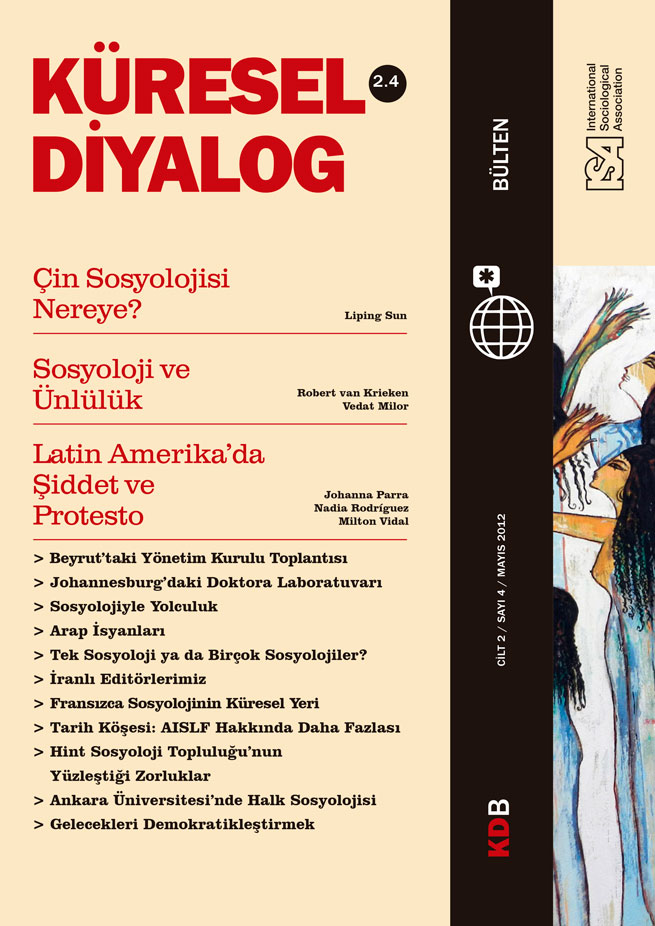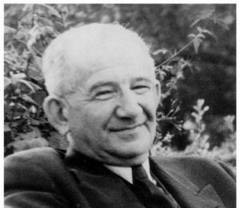Read more about Special Columns
Introducing the Editors: The Iranian Team
by Reyhaneh Javadi
History Corner: More on AISLF from the Archives
by Jennifer Platt
July 31, 2013
The 19th Congress of the International Association of French-Speaking Sociologists (AISLF) on “Uncertainty” (Penser l’incertain) will take place on July 2-7, 2012 in Rabat. AISLF, member of ISA, was founded in 1958 in a context of US military, economic, technological and scientific hegemony. From the 1950s, graduate and postgraduate students sought out opportunities to visit universities in the United States. This was not to everyone’s liking as the currents of functionalist conformism and statistical empiricism, then dominant in the US, contrasted with European approaches sensitive to conflict and social transformation. Georges Gurvitch, a leading figure in AISLF, developed Sorokin’s critique of US testomania and quantophrenia in his own way. Though the McCarthyte madness ended in 1954, it left its traces in US sociology.
The theoretical and ideological distance from US sociology, not to mention its linguistic one-sidedness, was a major influence on the decision to create an international space of French-speaking sociology. Thus, AISLF is an explicit act of scientific politics as well as an act of linguistic politics: the objective was to protect the diversity of sociological production and linguistic diversity by combining one with the other.
Over time, AISLF grew from a friendly academic gathering to an association of over 1,800 members from over 50 countries. It is not a regional or national association, but an association of cultural-linguistic spaces, both real and virtual, made up of countries, national regions, educational programs and research centers that are partially or totally French-speaking. Some are located in countries that are not French-speaking, others are simply French-loving sociologists isolated in non-French-speaking environments. This “regional-linguistic” association has over 50 very active thematic groups. It produces the online journal SociologieS and gives particular attention to the training of young researchers through Rédoc (International Network of Doctoral Schools), which organizes a summer school every year. The Association’s activities are summed up every six months in the Lettre de l’AISLF. For more details see aislf.org.
AISLF has also served as an international site for debate among several “schools” of French-speaking sociology without taking any sides directly. It has thus fulfilled its original objective – which remains the same today – of defending pluralism in sociology, and of encouraging debate within research committees. Regional-linguistic associations offer opportunities for the international incubation and spontaneous rooting of new concepts and paradigms that emerge in national contexts often too narrow to provide sufficient space for their growth. To prosper, sociological diversity requires such zones of linguistic proximity. One of the tasks of the ISA is to favor dialogue between areas that are more or less porous, which is what President Burawoy is trying to accomplish with respect to major global problems.
Clearly, linguistic zones are unequal and hierarchical. Today, the English zone stands at the summit. This hegemony, resulting from multiple circumstances and processes, should not blind us to the fact that linguistic zones, including the French-speaking one, have their own internal hierarchies and inequalities. To think and to write in French is not the same for a Senegalese, or a Moroccan, as it is for someone from France or Quebec. Indeed, we face a hierarchy of linguistic hegemonies with corresponding relations of inequality.
The context in which AISLF was founded has changed. Sociology in the United States is more diverse. Its most successful exports, the rational actor and interactionism, are two important aspects of French-speaking sociology today. Their success is probably related to the fragmentation of sociological subfields.
The bipolar world we knew (1950-1970) has disappeared to be replaced by a multi-polar one. We inhabit a world officially recognized for its cultural pluralism, characterized by global interdependence of previously unknown proportions, and anchored in the growing mobility of people, capital, information and products. We live in a time when our technological and scientific powers exceed anything that could have been imagined by the founders of our discipline. The liberal program of laissez-faire, associated with Descartes’s techno-scientific dream (“lords and masters of nature”), has given birth to such uncertainties in the world’s economy and ecology that there are new demands for global regulation after each crisis, simply to avoid drowning in our own contradictions and detritus. In organizing our 19th Congress in Rabat on the theme of “Uncertainty” we believe that sociologists have a special role to play in finding an exit from the narrow passage in which we are presently trapped.
André Petitat, University of Lausanne, Switzerland, and AISLF President
This issue is not available yet in this language.
Request to be notified when the issue is available in your language.
If you prefer, you can access previous issues available in your language:
